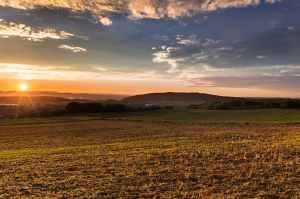Introduction
The winter holiday season evokes memories of family gatherings, meaningful rituals, reflection, and hopeful anticipation of the future. For many African American families, this time of year intertwines the traditions of Christmas rooted in Christianity, with the principles of Kwanzaa, rooted in our African heritage. The interweaving of these winter celebrations speaks to the complex history of African Americans through slavery, emancipation, the fight for civil rights, and the ongoing journey towards equality and racial justice.
Under the horrors of slavery, Christmas was an agonizing time for the enslaved, often marked by painful separation from loved ones. Our ancestors and families endured the tragedy of having family ties shattered as enslaved people were bought and sold. The Christmas season trade fueled the expansion of cotton plantations (Wilder, 2013, p. 5). Yet even in bondage, the human spirit persevered. Enslaved Africans and African Americans created opportunities for community, care, and hope through worship, music, stories, and shared meals (Wilder, 2013, p. 6).
The faith and resilience of ancestors set the stage for future generations to shape celebrations drawing on African and Christian traditions. Kwanzaa's focus on family and communal self-empowerment complements the spiritual meaning of Christmas for African American families. Exploring the principles of Kwanzaa alongside the teachings of Christianity can foster critical reflection on racial injustice and activate faith in the ongoing pursuit of freedom.
Watch Night Service: A Bridge From Christmas to Kwanzaa
On New Year’s Eve, African American churches throughout the US hold “Watch Night Services.” These services can represent a connection between Christmas and the upcoming Kwanzaa season. Watch Night traces back to gatherings on December 31, 1862 as Black communities awaited news about the Emancipation Proclamation decreeing the end of slavery in rebel territories (McGee, 2022). At Watch Night church services, congregants reflect on the living legacy of enslaved ancestors who fought for liberation. There is also attention to contemporary struggles for justice.
From African to America: Tracing the Roots of Kwanzaa

Kwanzaa, derived from the Swahili phrase “matunda ya kwanza,” meaning “first fruits,” was established in 1966 by Dr. Maulana Karenga, a professor and cultural activist. Born out of the Black Freedom Movement, Kwanzaa was envisioned as a cultural celebration that would reconnect African Americans with their African heritage and provide a platform for unity and self-determination.
The name “Kwanzaa” comes from the Swahili language, spoken widely throughout East Africa. It serves as a symbolic connection to the broader African continent. This intentional choice reflects Dr. Karenga’s vision of creating a celebration that honors diverse African cultures while fostering a sense of unity among African Americans.
Kwanzaa, celebrated from December 26th to January 1st, is a time for reflection, community building, and cultural reaffirmation. Families come together to light the Kinara, a candleholder symbolizing the ancestral roots of African Americans. Each of the seven candles represents one of the Nguzo Saba principles.
Kwanzaa, much like Christmas, uses candles as metaphors to help focus its celebratory goals. The Kwanzaa candle colors are black, red and green. A key custom during Kwanzaa is the daily lighting of the Kinara. On day one, the black candle – also known as the unity candle – is lit. On the second day, the red candle – also known as the unity candle – is lit. On the second day, the red candle on the immediate right of the unity candle is burned.
The celebration often includes the exchange of meaningful gifts, particularly those emphasizing creativity, purpose, and unity. Traditional African symbols, colors, and attire, play a significant role in Kwanzaa festivities, creating a visually rich and culturally immersive experience.
Connecting Christianity and Kwanzaa Principles
Unity

Kwanzaa's first principle Umoja (Unity) has parallels to Christian teachings of oneness in Christ. The Bible verse “That all of them may be one” (John 17:21) articulates unity as Gospel’s message of longing for human harmony. Many of our churches sing the refrain “We are one in the spirit, we are one in the Lord.” Although this is not a specifically Christmas song, this message resonates as a call for unity across difference (Estill, 1966). This message is particularly apropos in connecting the unity in the Christian tradition to the principle of Umoja in Kwanzaa. This principle upholds the divine promise that united communities can overcome division and oppression.
Self-Determination
Kujichagulia (Self-Determination) also connects to the Christian values of free will and liberty. The biblical verse “Where the Spirit of the Lord is, there is freedom” (2 Corinthians 3:17) speaks to the sacredness of human freedom. Like Kujichagulia’s emphasis on defining oneself for oneself, self-determination calls on individuals to liberate themselves from limitations. This, indeed, resonates with the Bible verse “I can do all things through Christ who strengthens me” (Phil 4:13).
Collective Responsibility
Ujima (Collective Work and Responsibility) relates to Christianity's teachings on fellowship and unity within the body of Christ. As written in the Bible verse, “If one part suffers, every part suffers with it; if one part is honored, every part rejoices with it” (1 Corinthians 12:26). This conveys interdependence, just as Ujima communicates that individual success is tied to communal obligations. Ujima asks individuals to uplift their communities. Christians are likewise called to participate responsibly in their churches.
Cooperative Economics
Ujamaa (Cooperative Economics) echoes Christianity's imperatives for economic justice. The Biblical verse “Do not exploit the poor because they are poor...Do not deny justice to your poor people in their lawsuits” (Exodus 23:6) speaks against income inequality and poverty. Though Christmas is often celebrated in ways which advance a capitalist framing, that is not the true message of Christianity. Instead, the Christian tradition stresses fair distribution of wealth - a key theme of Ujamaa. Cooperative economics in both Kwanzaa and Christian contexts remind us of our duty to correct unjust systems that confer advantage and disadvantage based on wealth.
Purpose
Nia (Purpose) connects to the widespread Christian teaching to live purposefully in faith, hope, and service. As written in the Bible, “For I know the plans I have for you, plans to prosper you and not to harm you, plans to give you hope and a future” (Jeremiah 29:11). Linked with one's talents, Christian purpose includes using individual gifts to contribute to communal well-being. Similarly, Nia involves discerning and fulfilling one’s role in bettering the lives of others.
Creativity
We experience the principle of Kuumba (Creativity) as it is rooted in African American improvisational traditions. Our hardships and dehumanization during slavery are consistently transformed into soulful artistic expression, intellectual insight and civic passion. The Biblical Book of Psalms encourages making a joyful noise through voices and instruments as creative offerings to God. Kwanzaa reinforces the spiritual fruits of expressing creativity, often embodied in African American cultural forms like music, movement, folk arts and poetry.
Faith
Kwanzaa's last principle Imani translates as Faith, envisioning Black communities keeping faith in unity, liberation, and redemption. One of the best loved texts to exemplify this principle is, “Faith is confidence in what we hope for and assurance about what we do not see” (Hebrews 11:1). Faith fuels our spirituality connecting us to both our ancestors and our future. As underscored by both Kwanzaa and Christian precepts, believing in the unseen moves communities from suffering to salvation.
Kwanzaa and Christmas are interconnected through these important principles. Christian teachings speak to the complexities of African American experiences - from the horrors of ruptured family bonds during slavery, to the seeds of unity and self-determination that blossomed into freedom movements. In 2023, African American families can intertwine Kwanzaa and Christmas traditions as reminders of the past and inspiration to work towards a just future guided by faith. The winter season continues to be one of reflection, reckoning, celebration, worship, recommitment to values, focusing on our youths, and reinforcing bonds across generations.
Conclusion
Kwanzaa's emergence in 1960s America uplifted principles to strengthen Black community ties towards building a more just society. These same principles connecting individuals to communal obligation resonate deeply with Christian teachings on oneness, fellowship, and collective uplift.
By weaving together Kwanzaa with faith-based celebrations of Christmas, African American families can bridge traditions to honor the past and meet the ongoing challenge of fighting oppression. Through worship and ritual, creativity, service, consciousness-raising and more, the days between Christmas and New Year's continue to renew spirits and fortify Black communities to walk in faith through the promise of freedom. We will share additional insights on these two holiday traditions to expand the ways we might celebrate both religious traditions and newer cultural rituals.
Dr. Nash for the Misogynoir to Mishpat (M2M) Research Network © 2024
References
Wilder, C. S. (2013). Ebony and ivy: Race, slavery, and the troubled history of America's universities. Bloomsbury Publishing USA.
McGee, K. (2022, December 30). The Grio. What is 'Watch Night' and why do Black Christians hold services on New Year's Eve? https://thegrio.com/2022/12/30/what-is-watch-night-new-years-eve-service-history-black-church/
Estill, G. K. (1966). One in the Spirit [Recorded by Golden Gate Quartet]. On The Best Of The Golden Gate Quartet [record] New York City, NY: Columbia Records.





Thanks for sharing. That's lovely. And much needed in this day and age of just global dehumanisation of ordinary people that I think we must stop before it gets as bad as some people, communities in the past have suffered
Thank you for your kind words of support!